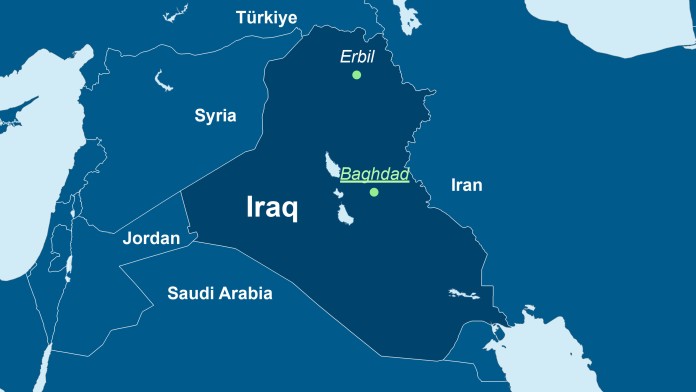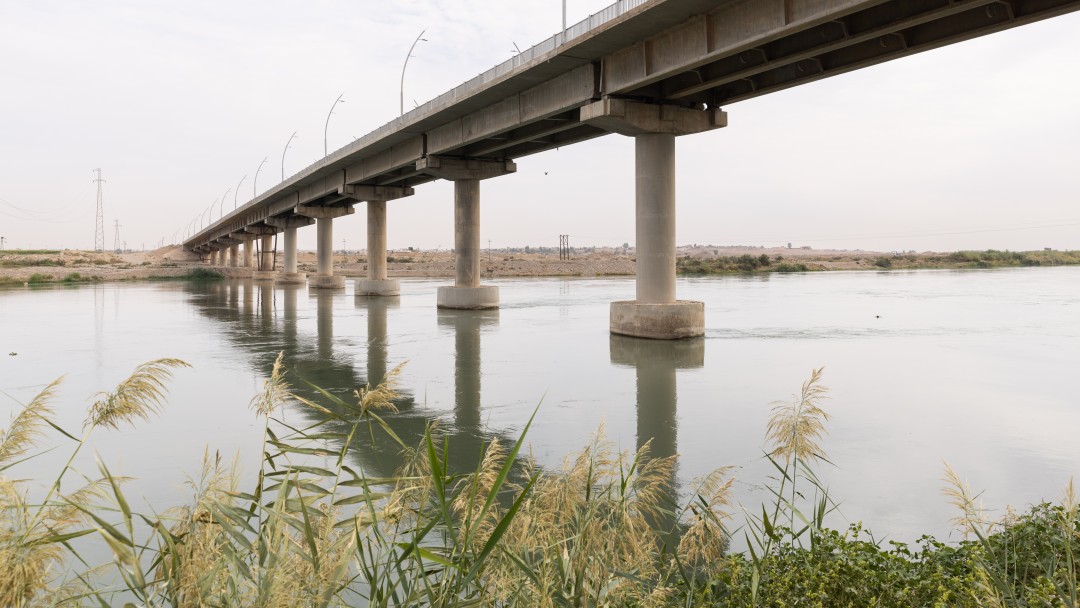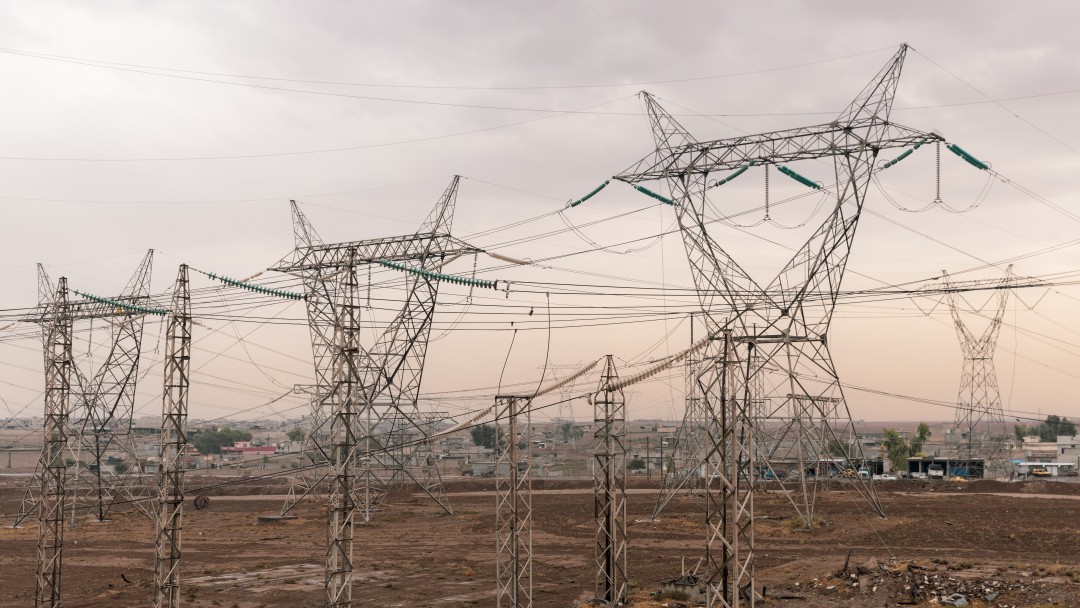
As of: 03/2024
For the most part, the Islamic State (IS) terrorist militia was defeated by the military in Iraq in 2017. However, the consequences of the armed conflicts are still tangible today. Many hospitals, roads, bridges, power grids and other facilities have been damaged or completely destroyed. This also makes it more difficult for internally displaced persons to return to their homes, which is why KfW, on behalf of the German Federal Government, is supporting the reconstruction of infrastructure in the transport, health, energy and water sectors. This extensive programme has quickly brought about noticeable improvements in the quality of life of many people.
The battles against Islamic State (IS) in Iraq ended when Mosul was recaptured in July 2017. In addition to the human suffering, the fighting had also caused extensive damage to the infrastructure. Mosul, which was the scene of intense fighting, suffered particularly severe and widespread destruction. There, entire residential areas, some hospitals and Iraq’s second largest university were damaged or even razed to the ground as a result of the brutal fighting. Many people were driven out of their homes due to the fighting and associated destruction. To support the return of these people to their homes, a wide range of investments are needed in the affected areas, which range from hospitals and bridges to electricity supply.

On behalf of the German Federal Foreign Office, KfW Development Bank is providing the Iraqi government with loans worth up to EUR 500 million. The funds are intended to help restore the infrastructure in the liberated provinces of northern Iraq and stabilise the country in the long term. A steering committee, comprising representatives of the Iraqi government, the Foreign Office and KfW, has the task of deciding on the individual investments; the relevant Iraqi ministries responsible for implementing the projects will also make recommendations.
The loan will finance urgently needed investments in the following sectors:
Many of the projects are located in and around the city of Mosul in northern Iraq. The fighting with IS led to a large number of internally displaced persons there. Other programme locations include the provinces of Al-Anbar, Salah ad-Din and Bagdad.
ReFAATO (Reconstruction Fund for Areas Affected by Terroristic Operations) is the Iraqi authority responsible for reconstruction and the project-executing agency for all the projects financed by the loan provided by the German government. Its most important task is to coordinate the different donor activities at the interface between short-term humanitarian aid and medium-term reconstruction. Through the project, ReFAATO has acquired capacities in areas such as environmental and social sustainability, conflict-sensitive project design and the remote monitoring of construction work.

The programme is characterised by rapid implementation and tangible results in a short time. People's living conditions have been significantly improved. This is also demonstrated by the projects that have already been completed.
In the energy sector, eight mobile substations have been installed in Mosul, where they supply electricity to around 140,000 households and public institutions, including one of the most important hospitals in the western part of the city (Al Shifa) which was completely destroyed. Until then, this hospital had sourced its energy from diesel generators that are expensive to run and harm the environment. These are now no longer necessary. To sustainably improve the electricity supply for the region in the long term, the project is also financing the restoration of a substation with a capacity of 400 kV. This is located in the west of Mosul and provides about 20% of the city’s electricity supply (the Mosul Supergrid substation). Completion of this station will ensure a reliable electricity supply for most of Mosul’s residents.
Substations in Tikrit and Ramadi as well as four other substations outside Mosul in the Niniveh region will also be restored. A power line, which is approximately 155 kilometres long and extends from Haditha to Al-Qaim in western Iraq, is also being repaired. One million people already benefit from the restored electricity supply.
In terms of water and waste water, 22 water treatment plants have already been rebuilt and now provide people with a reliable supply of clean drinking water. An estimated 228,000 people are benefiting from these projects. The local water authority in Niniveh has also received a range of equipment to enable it to perform its day-to-day work better and more efficiently. In Bartella (also in Niniveh), preparation is underway for the construction of a new water pipeline, which is about 27 kilometres long.
Numerous roads and bridges have also been repaired. Remediation of overland transport is an indispensable prerequisite to ensure that goods and people can be transported and in doing so, get the economy going again. The funds from the project have already been used to repair five bridges in the province of Niniveh. In addition, 90 kilometres of the motorway from Mosul to Baghdad have been renewed.
The project is also contributing to the reconstruction and new construction of two hospitals in Baghdad and Mosul, so that people can receive medical care there again.
The numerous improvements in living conditions make it easier for internally displaced persons to return to their original communities.
The project contributes to the achievement of these following United Nations Sustainable Development Goals:
KfW Group
KfW Development Bank
KfW Office Iraq
Afghanistan, Pakistan, Iraq
Share page
To share the content of this page with your network, click on one of the icons below.
Note on data protection: When you share content, your personal data is transferred to the selected network.
Data protection
Alternatively, you can also copy the short link: https://www.kfw-entwicklungsbank.de/s/enzBy7nj
Copy link Link copied